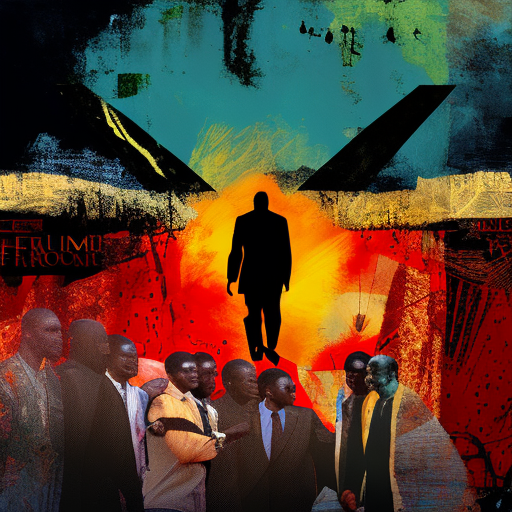Summary:
Nelson Mandela’s autobiography, “Long Walk to Freedom,” chronicles his extraordinary life journey from a young boy in a rural village to becoming the first democratically elected President of South Africa. This powerful memoir provides a firsthand account of Mandela’s fight against apartheid, his time in prison, and his unwavering commitment to justice and equality. Through his story, Mandela inspires readers with his resilience, determination, and unwavering belief in the power of forgiveness and reconciliation.
From Humble Beginnings to Political Activism:
Born in a small village in the Eastern Cape, Mandela grew up in a society deeply divided by racial segregation. He witnessed the injustices of apartheid from an early age, which fueled his passion for justice and equality. Mandela’s involvement in student politics and his role as a lawyer in Johannesburg marked the beginning of his activism against the oppressive apartheid regime.
As the African National Congress (ANC) gained momentum, Mandela became a prominent figure in the struggle for liberation. He advocated for nonviolent resistance, but as the government responded with increasing brutality, Mandela and his comrades recognized the need for armed resistance. This decision ultimately led to Mandela’s arrest and subsequent imprisonment.
Imprisonment and Resilience:
Mandela’s imprisonment on Robben Island spanned 27 years, during which he endured harsh conditions and constant surveillance. Despite the physical and emotional toll, Mandela remained resolute in his commitment to the struggle. He used his time in prison to educate himself, engage in political discussions with fellow inmates, and maintain contact with the outside world.
Mandela’s leadership skills and ability to unite diverse groups became evident during his time in prison. He played a pivotal role in organizing resistance movements and negotiating with prison authorities. Mandela’s unwavering determination and refusal to compromise on his principles earned him respect both within and outside the prison walls.
Transition to Democracy and Legacy:
After his release in 1990, Mandela played a crucial role in the negotiations that led to the end of apartheid and the establishment of a democratic South Africa. His leadership and ability to foster reconciliation were instrumental in preventing a violent transition. Mandela’s commitment to forgiveness and inclusivity set the stage for the Truth and Reconciliation Commission, which aimed to heal the wounds of the past and build a united nation.
In 1994, Mandela became the first black President of South Africa, marking a historic moment in the country’s history. He dedicated his presidency to dismantling the legacy of apartheid, promoting social justice, and improving the lives of all South Africans. Mandela’s presidency was characterized by his efforts to address poverty, inequality, and the HIV/AIDS epidemic.
Throughout his life, Mandela remained an advocate for peace, justice, and human rights. His unwavering commitment to these principles earned him international recognition and numerous awards, including the Nobel Peace Prize. Mandela’s legacy continues to inspire people around the world, reminding us of the power of forgiveness, reconciliation, and the pursuit of justice.
Key Takeaways:
- Nelson Mandela’s autobiography, “Long Walk to Freedom,” provides a firsthand account of his extraordinary life journey and his fight against apartheid.
- Mandela’s resilience, determination, and unwavering belief in justice and equality serve as an inspiration to readers.
- The book highlights the power of forgiveness and reconciliation in overcoming deep-seated divisions.
- Mandela’s leadership skills and ability to unite diverse groups were instrumental in the transition to democracy in South Africa.
- His legacy continues to inspire people worldwide, reminding us of the importance of fighting for justice and equality.
“I learned that courage was not the absence of fear, but the triumph over it.”
– Nelson Mandela
In “Long Walk to Freedom,” Nelson Mandela shares his remarkable story, offering a testament to the indomitable human spirit and the power of perseverance. His journey from prisoner to president serves as a powerful reminder that even in the face of adversity, one person can make a difference and change the course of history. Mandela’s legacy as a symbol of hope and resilience continues to inspire generations to fight for justice and equality.












